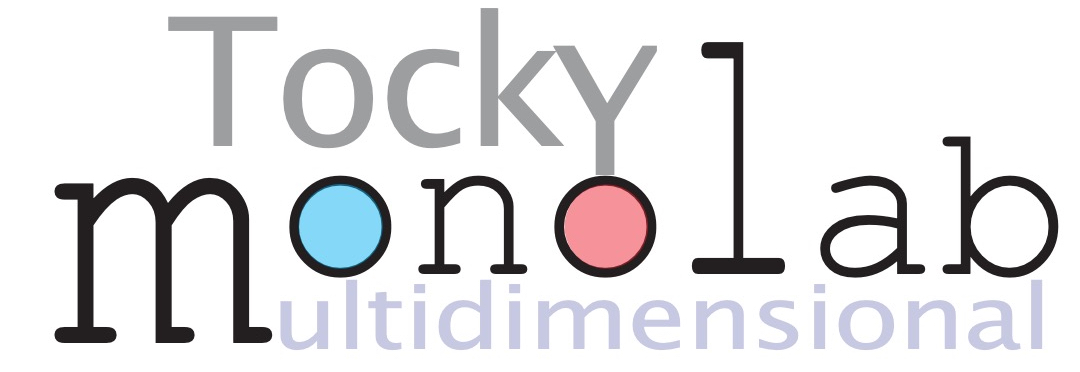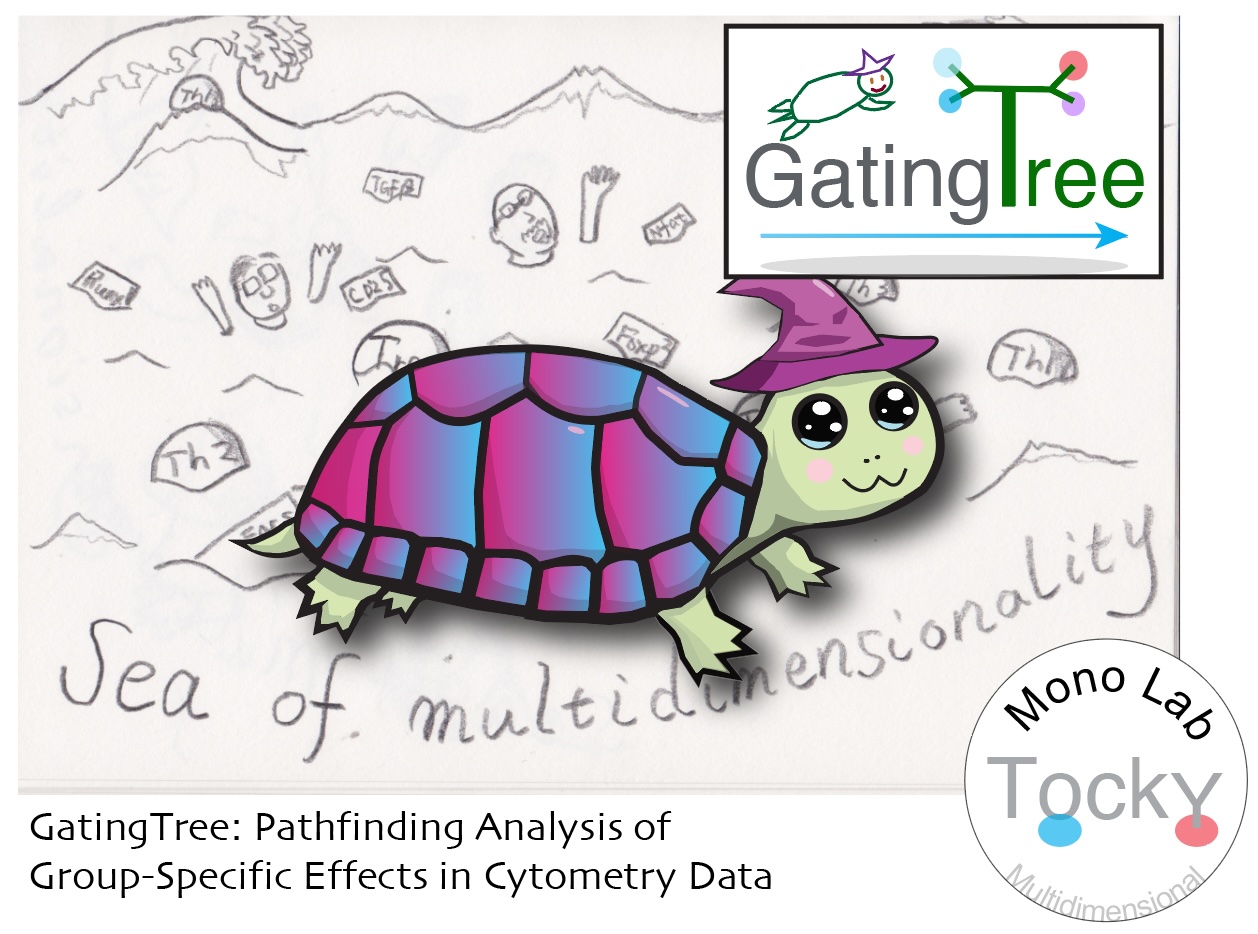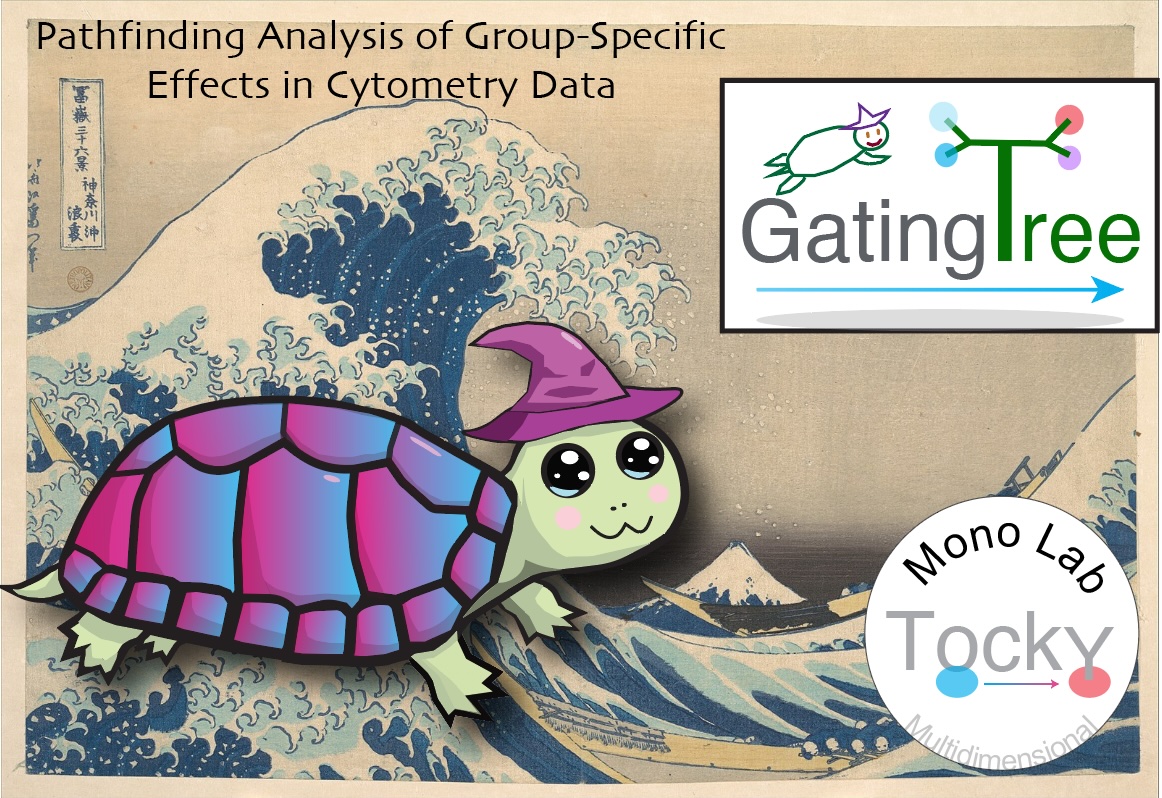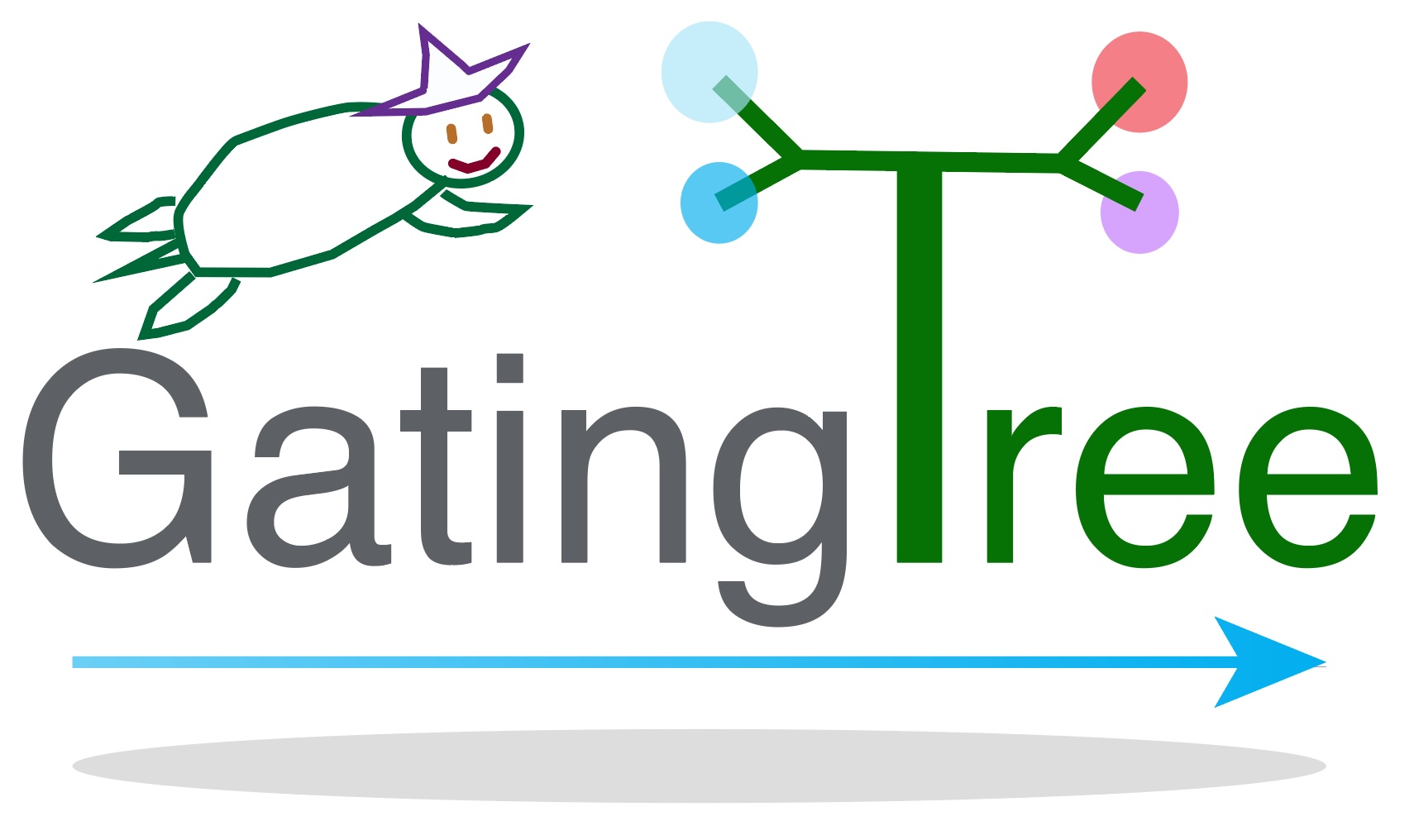GatingTree: Navigating Multidimensional CytometryData
Dr. Masahiro Ono
2025-03-24
Source:vignettes/NavigatingMultidimensionalCytometryData.Rmd
NavigatingMultidimensionalCytometryData.Rmd

GatingTree is an R package designed to enhance the analysis of group-specific effects in cytometry data.
Current Challenges
- Advancements in Technology: Cytometry technologies have advanced to allow simultaneous analysis of numerous markers.
- Complex Data Analysis: These advancements introduce challenges in analyzing biological effects, such as treatment effects, within high-dimensional data.
-
Limitations of Traditional Methods:
- Manual gating does not meet complex analytical demands.
- Dimensional reduction methods like UMAP, with or without clustering,
are commonly used but struggle with:
- Reproducibility: Poor reproducibility across experiments.
- Practical Application: Identified cell clusters often do not translate into effective gating strategies in the lab.
- Reproducibility Crisis: These issues contribute to a reproducibility crisis in biological and medical research.

Solutions GatingTree Offers
-
Innovative Approach:
- No Dimensional Reduction: Does not rely on dimensional reduction techniques.
- Pathfinding Analysis: Explores the multidimensional marker space to pinpoint group-specific features.
-
Avoidance of Standard Analyses:
- Deliberately avoids traditional multidimensional analyses like PCA and UMAP.
- Does not use clustering algorithms.
-
Practical Applications: Provides straightforward
solutions that are:
- Directly applicable in downstream processes.
- Ideal for tasks such as flow cytometric sorting of target populations.
